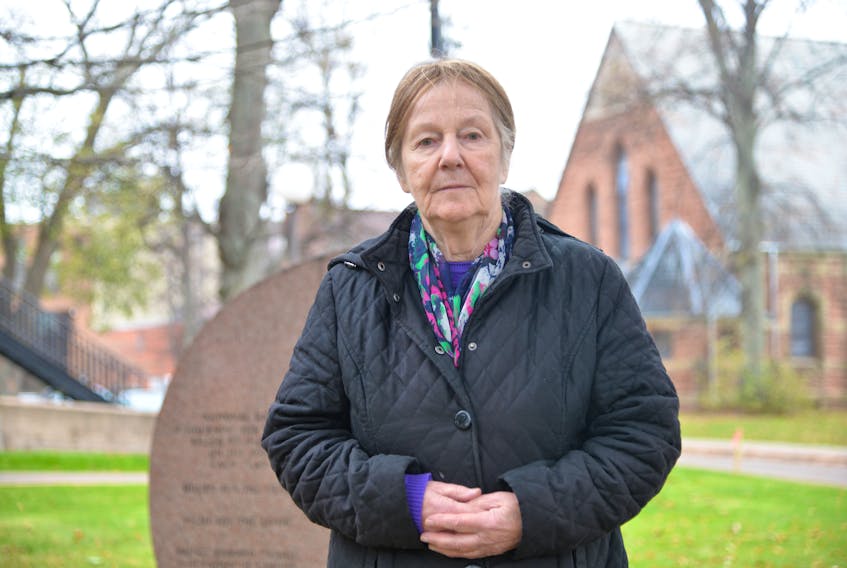CHARLOTTETOWN, P.E.I. - Mary Boyd of the Mackillop Centre for Social Justice says that the minimum wage increase to $11.55 per hour set to take effect on April 1 doesn’t go far enough to help individual workers and families.
“It’s not enough to help the insecurity of the workers for their family, and for the fact that they’re actually falling behind at this kind of level of wage increase,” said Boyd, the organization’s founder and co-ordinator.
Boyd says the new minimum wage increase still places workers and families with children below the poverty line (based on the 2015 Low-income measure).
She supports the idea that P.E.I. follows Alberta, Ontario and British Columbia and raise the minimum wage to $15 an hour.
Alberta’s minimum wage increase is set to take effect next October while Ontario’s will increase in 2019 and British Columbia’s in 2021.
Last week, the P.E.I. government announced that the minimum wage was going up from $11.25 to $11.55 an hour on April 1, 2018. The current minimum wage is the result of a previous 25-cent increase announced in February that took effect on April 1.
Boyd also points out that a minimum wage increase is needed to help out with the increasing cost of living on the Island. Even though a lot of businesses pay above the minimum wage, she notes that there is still a tendency to pay at the minimum wage rate and hire workers on a part-time basis.
In terms of the other provinces in Atlantic Canada, the hourly minimum wage in Nova Scotia is $10.85 for experienced workers ($10.35 for inexperienced workers) and $11 in both New Brunswick and Newfoundland and Labrador.
The Canadian Federation of Independent Business took exception with the February announcement since it only gave businesses three months to adjust to the minimum wage increase.
Erin McGrath-Gaudet, director of P.E.I. and Intergovernmental Policy at the Canadian Federation of Independent Business (CFIB), said last week’s announcement is more positive since it gave businesses more time to make adjustments.
“Any time costs go up for businesses, it is a challenge, particularly in those industries that have low-profit margins, to adapt,” she said.
“I still see this as a significant increase with the rate itself, and for businesses that find themselves in those categories – it’s going to be tough. That being said, giving a five-month notice, that’s pretty much unprecedented for government in recent years. We’ve seen really short notice of any increase to minimum wage. So, we’re pleased that, at least on the notice side, we’ve seen significant improvement this year.”
RELATED: P.E.I. businesses will receive notice of any future minimum wage increases
McGrath-Gaudet explained that some of the impacts could involve increasing prices or cutting back on staff hours.
In a press release, the Greater Charlottetown Area Chamber of Commerce said the “timeliness” of the province’s announcement was a positive step, but that “more must be done to improve the fairness and predictability of the rate increases.”
“It’s challenging for business owners to adapt to a wage increase, which is why the chamber has recommended at least six months notice on increases,” said Rory Francis, the chamber’s president.
Francis is also calling on the province to increase the basic personal tax exemption and for minimum wage increases to be more in line with increases to the Consumer Price Index.
Francis says minimum wage increases have “far exceeded” increases to the Consumer Price Index.
“This has put extra pressure on business owners who, due to competition, must maintain competitive prices despite the rising costs of doing business,” he adds.
But Boyd is concerned with the “pessimistic” and “worst-case” scenarios communicated by business lobbyist organizations in terms of the negative impact of minimum wage increases on the tourism industry, businesses and the economy. She adds that there is no evidence of any significant job loss as a result of increases to the minimum wage.
“I think what has been proven true is that the minimum wage is a very concrete way to boost the bottom line of workers and it also boosts their productivity and their spending powers. So, it’s actually very good for the economy to have increases in the minimum wage,” she said.









